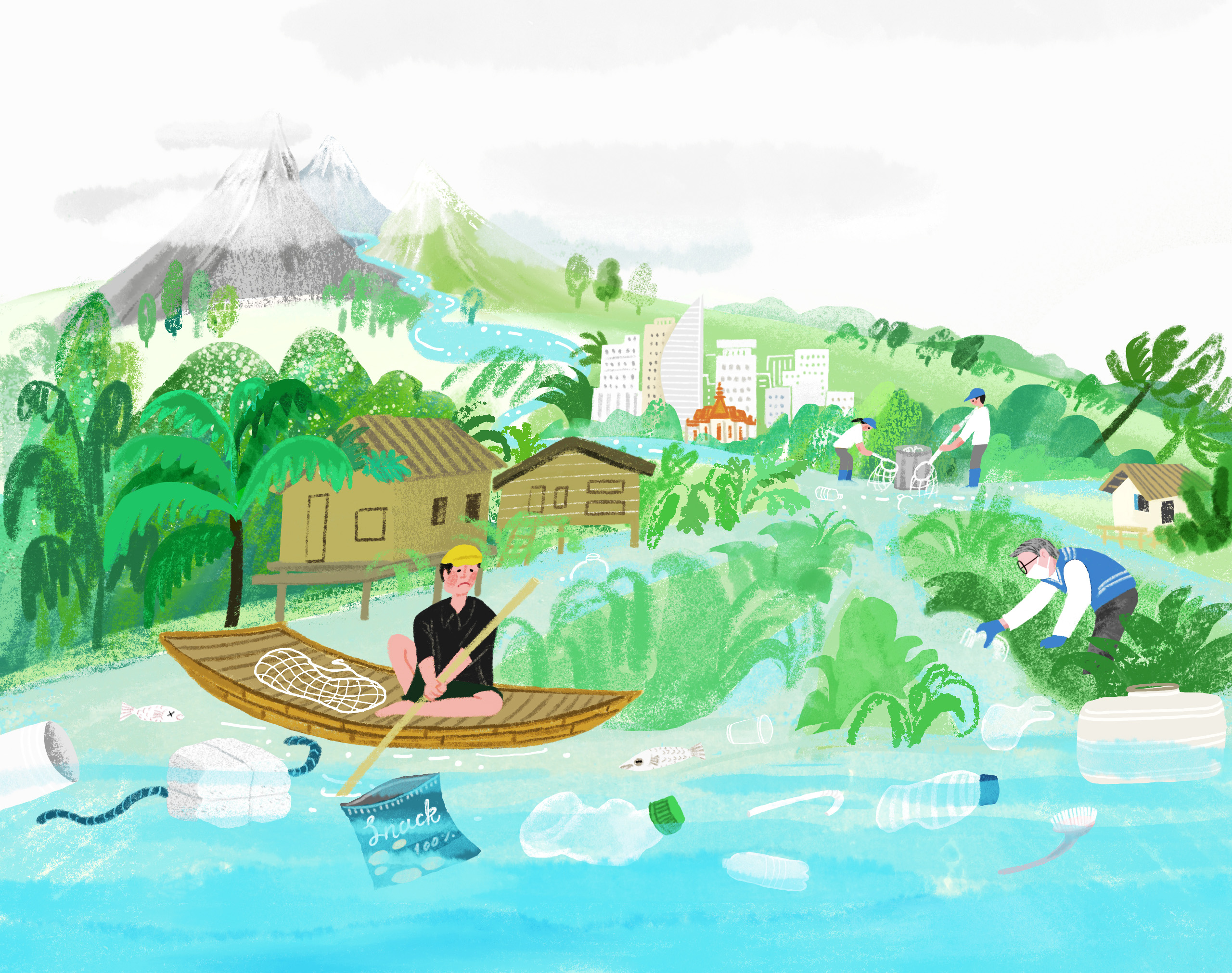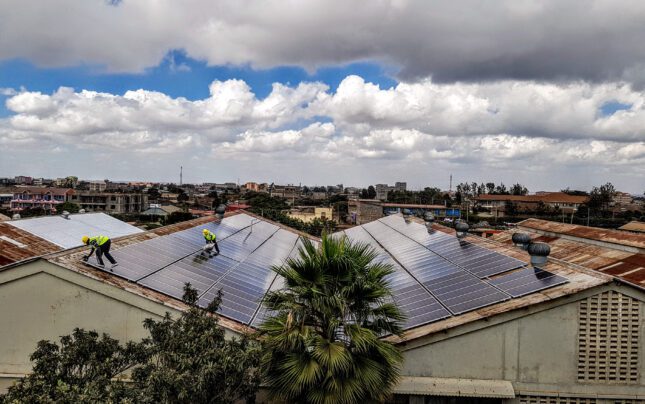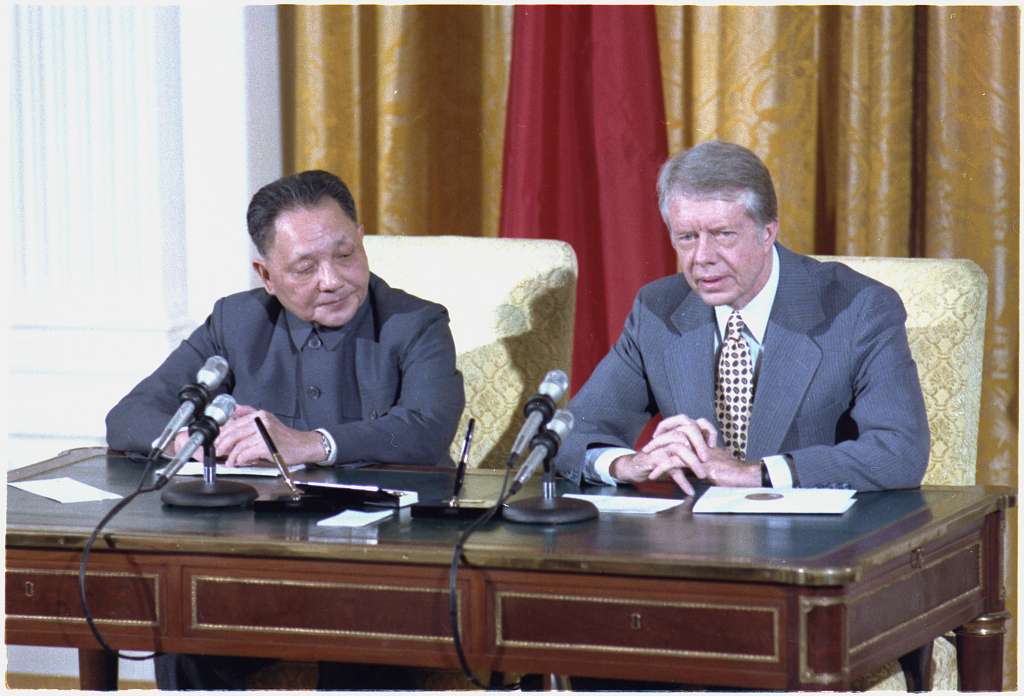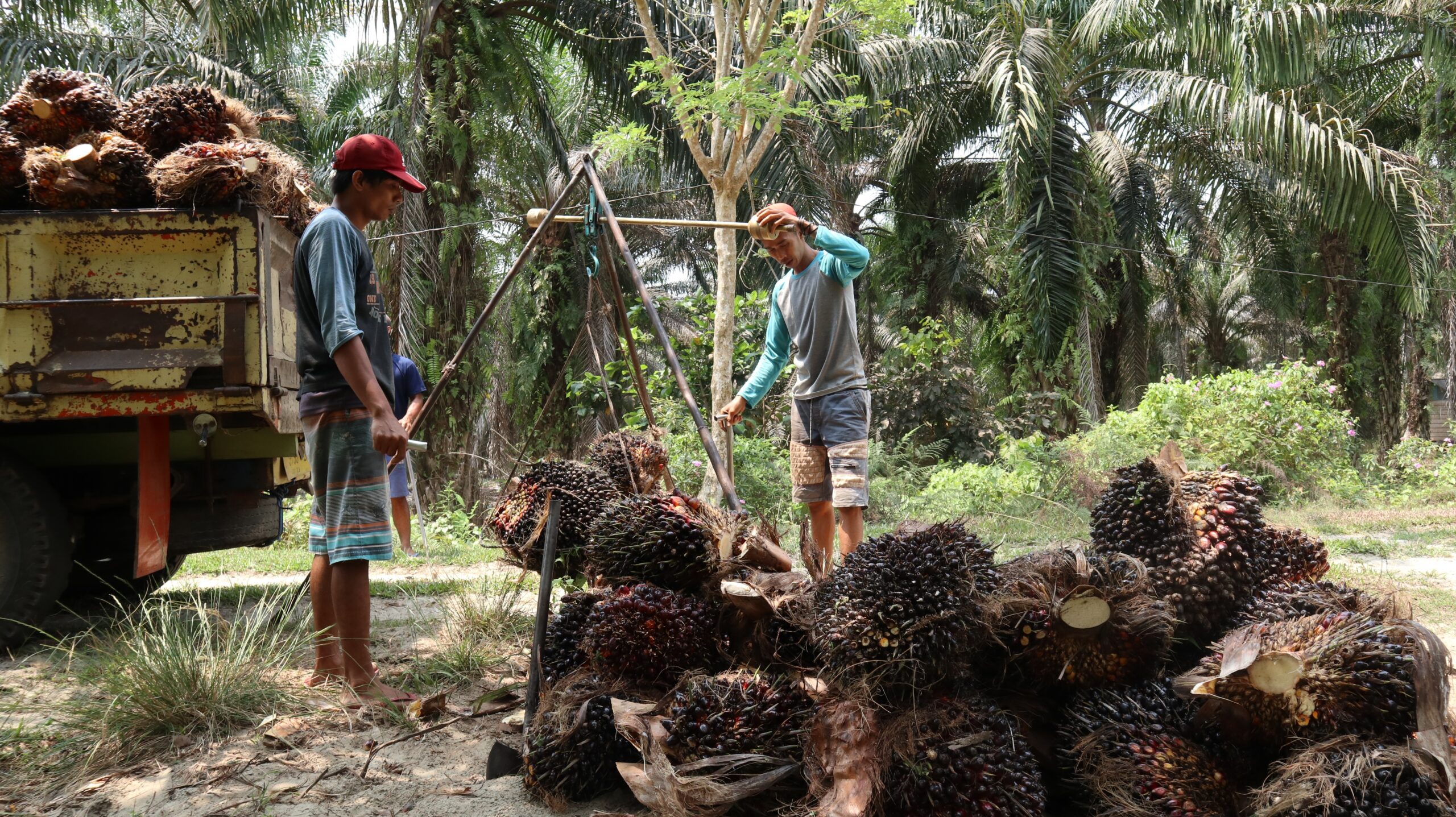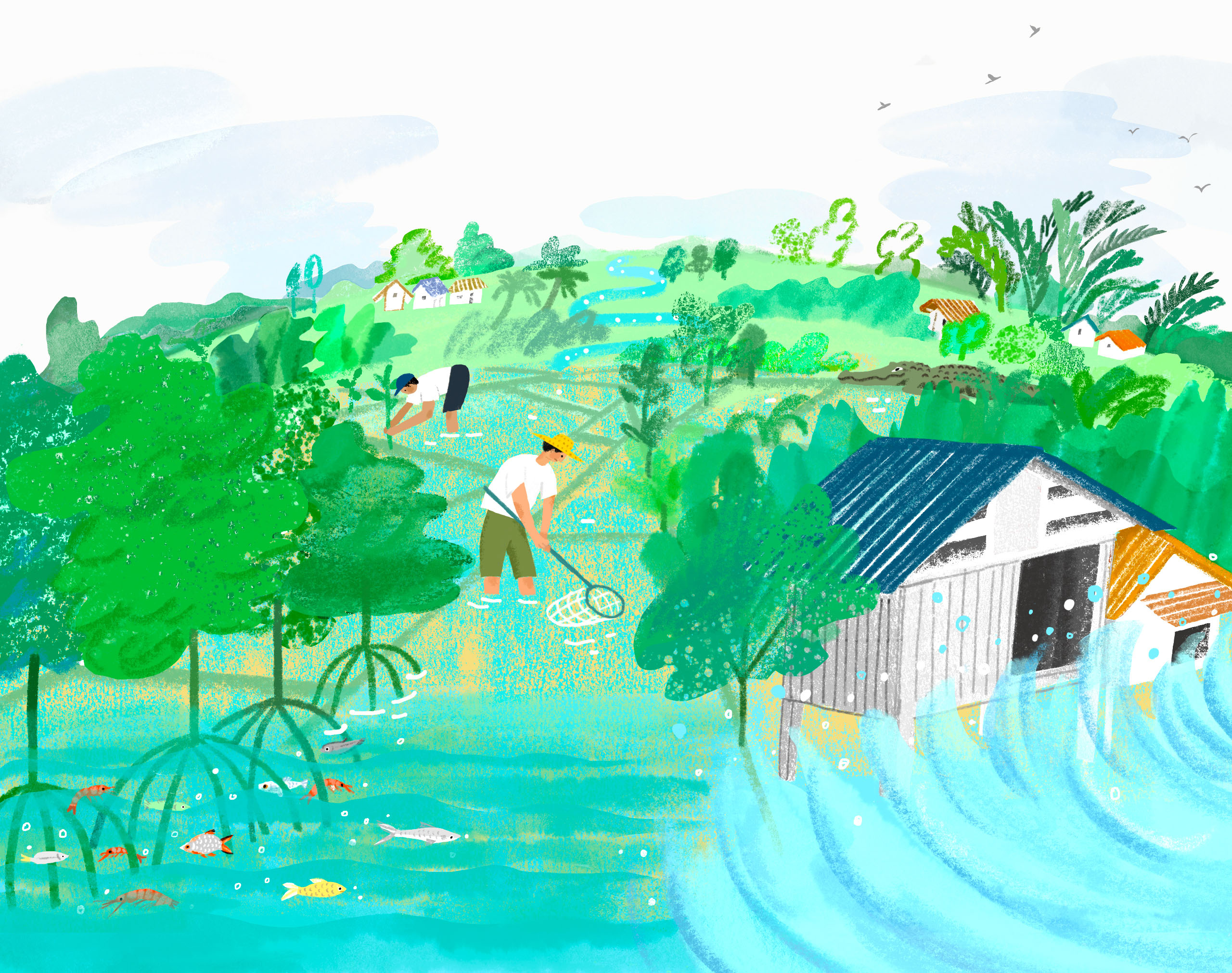-
The Struggle Against Plastic Choking the Mekong
›China Environment Forum // Guest Contributor // Vulnerable Deltas // December 19, 2024 // By Anton L DelgadoOn Son Island in Vietnam’s Mekong Delta, Le Trung Tin scatters fish feed into his ponds, where dozens of snakehead fish leap through the surface in synchronised bursts. “I taught them how to do that,” he says proudly, tossing another handful of feed at his fish.
The scene looks idyllic, but Le’s fish farm is a reluctant response to an escalating crisis. For decades, he made his living fishing the Hau River, a distributary of the Mekong. But in recent years, plastic waste clogged his nets and strangled the fish. “I had no choice but to stop,” he says. “Everything was tangled – trash, nets, even the fish themselves. It was hopeless.”
-
US-Africa Energy Development: An Opportunity for the Trump Administration?
›China Environment Forum // Guest Contributor // December 12, 2024 // By Kalim Shah & Etchu Tabenyang
While traditional fuels likely will remain part of Africa’s energy portfolio for some time to come, the fossil fuel industry does face strong headwinds from a continuing global march towards alternative sources of clean energy. Indeed, the energy poverty experienced by nearly a billion Africans seems incomprehensible given the combination of massive untapped oil and gas resources, as well as available hydropower, solar and wind potential across the continent.
-
US Agricultural Success Built on US-China Scientific Exchange
›China Environment Forum // Cool Agriculture // Guest Contributor // December 5, 2024 // By Karen Mancl“History teaches that China and the United States gain from cooperation and lose from confrontation” was part of the congratulatory note from Xi Jinping to President-elect Trump. Xi also stressed both sides should continue to uphold “mutual respect, peaceful coexistence and win-win cooperation.” The cooperation between these two superpowers began in 1972 when President Richard Nixon and Premier Zhou Enlai signed the Shanghai Communiqué, years before they established diplomatic relations.
-
Lights On or Off? Chinese Solar and Wind Companies in Sub-Saharan Africa
›Africa in Transition // China and the Global Energy Transition // China Environment Forum // Guest Contributor // November 21, 2024 // By Xiaokang XueWhen I stepped into the bustling exhibition hall at Enlit Africa in Cape Town in May 2024, I was surprised by the riot of colorful banners featuring Chinese characters. A whopping 40% of the exhibitors at one of Africa’s largest energy and power conferences in Cape Town from China—more than any other country.
-
China’s Offshore Wind Blows Away the Competition, For Now: Q&A with Trivium China’s Cosimo Ries
›China and the Global Energy Transition // China Environment Forum // November 7, 2024 // By Man-Hsuan Lin“The size and power output of China’s new offshore wind turbines are remarkable. We are talking about turbines almost 200 meters tall, with blades spanning the length of a football field. The amount of electricity they can generate is staggering.” enthused Cosimo Ries from Trivium China, who is a clear “fan” of offshore wind. And China’s turbines are getting bigger. The Dongfang Electric Corporation just rolled the world’s largest single-capacity offshore turbine (26MW) off the production line in Fujian Province this October.
-
China’s First National Park: Managing Access and Benefits
› Bharal (Himalayan blue sheep) near Donggecuona Lake near Madoi are well camouflaged – look closely to find the nine in the photo.
Bharal (Himalayan blue sheep) near Donggecuona Lake near Madoi are well camouflaged – look closely to find the nine in the photo. As I hiked over the crest of a small hill near Donggecuona Lake in Madoi County, Qinghai Province, I startled a herd of over fifty bharal (Himalayan blue sheep) on the slope ahead of me. Some that were lying down suddenly scrambled to their feet. Others took a brief pause in their grazing to look up at me. I whispered to my guide Sonam Gyurme, “Look!”
-
A Decade of Progress on Palm Oil Deforestation at Risk in Indonesia
›China Environment Forum // Guest Contributor // Vulnerable Deltas // October 24, 2024 // By Jason Jon Benedict & Robert HeilmayrIndonesia is the world’s largest producer and exporter of palm oil, an ingredient used globally in a huge variety of food and household products from peanut butter to shampoo. Yet it is also an important driver of deforestation and contributor to climate change and biodiversity loss. Over the past 20 years, the expansion of palm oil plantations has contributed one-third of the total loss of old-growth forests in Indonesia (around 3 million hectares).
-
A Tipping Point for Mangrove Restoration and Shrimp Farming in Indonesia
›China Environment Forum // Guest Contributor // Vulnerable Deltas // October 17, 2024 // By Muhibar Sobary ArdanThe Mahakam River flows for 900 km from the highlands of central Borneo through thick rainforest before fanning into a lush delta that feeds the Makassar Strait. Once dense with mangroves and palms, the wetland islands protected coastal communities, supported biodiversity and served as a significant carbon sink.
However, in the 1980s, shrimp ponds began replacing the mangroves. By 2020, around half of the delta’s forests were lost due to weak regulatory enforcement and inadequate environmental protection. This large-scale deforestation increased the area’s vulnerability to climate change.
Showing posts from category China Environment Forum.


